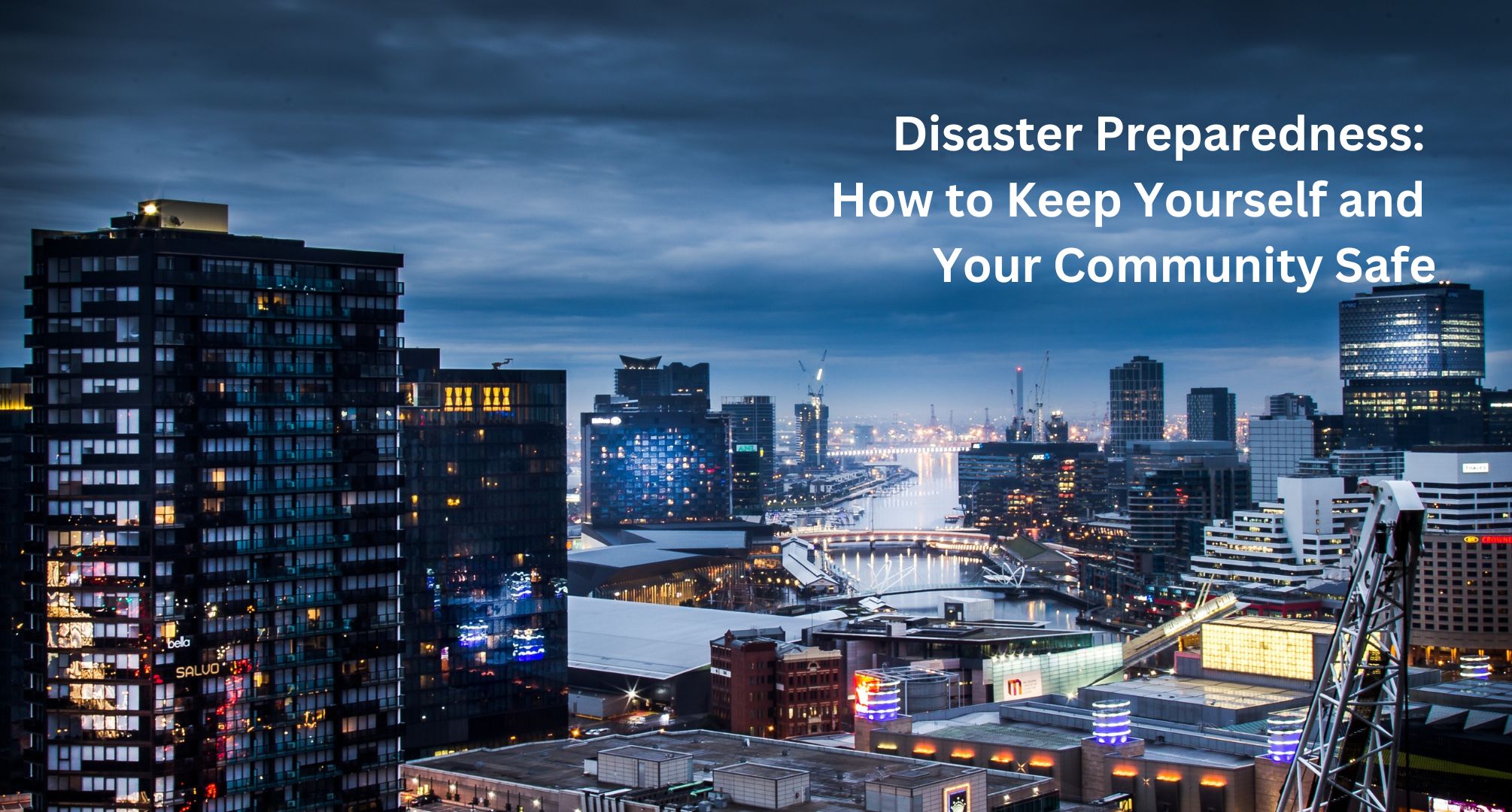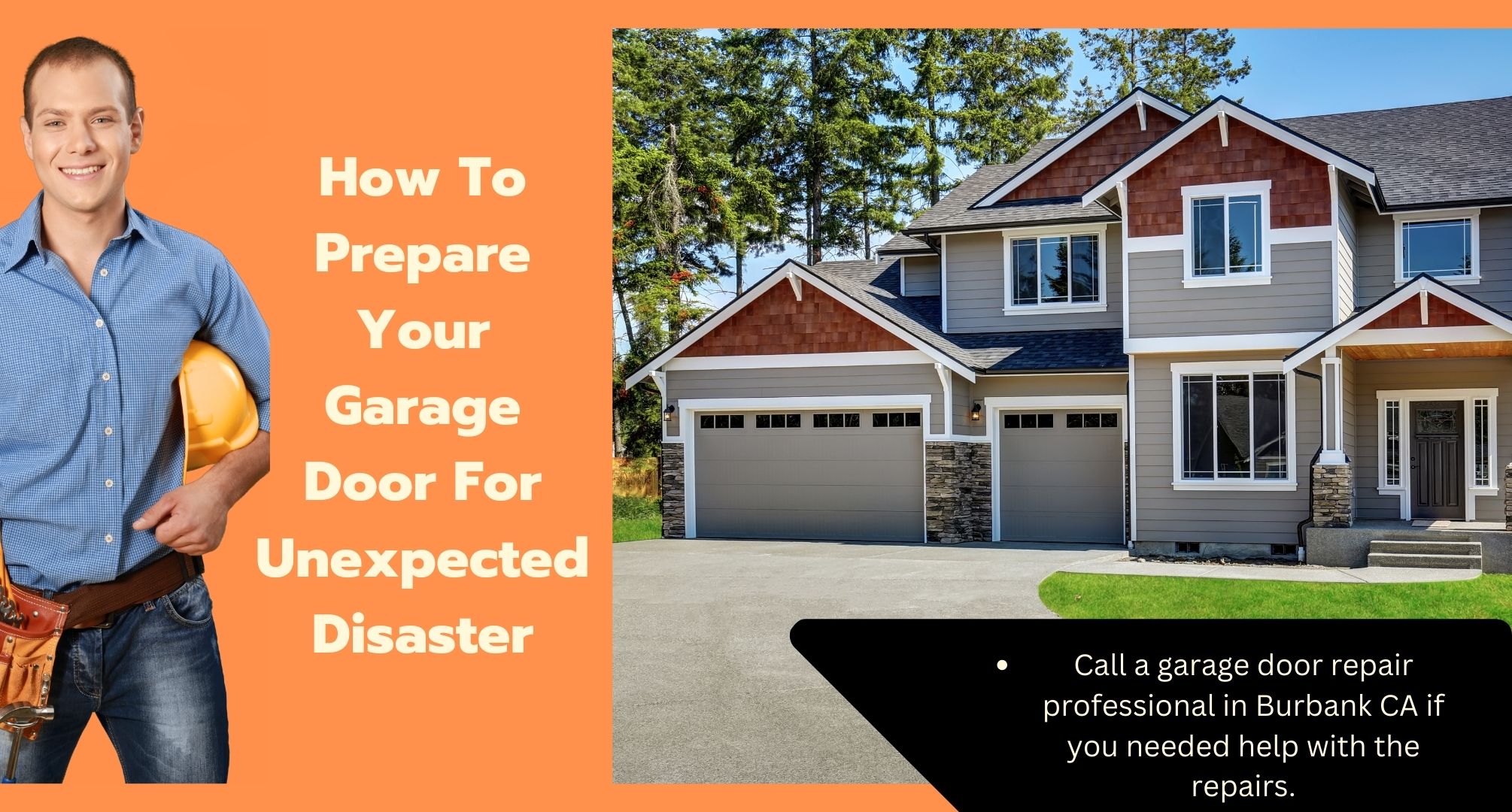
Disaster preparedness is essential for a variety of reasons. To begin with, disasters can occur at any time but without warning, and being prepared can make a significant difference in how people and their neighborhoods cope with the aftermath. Proper disaster preparation can help to reduce fatalities, damage to property, and speed the recuperation process.
Another reason it is critical is that it aids in the development of resilience in people as well as neighborhoods. Preparedness for disasters can make people feel more in control and less defenseless in the face of a disaster. Furthermore, well-prepared societies are better equipped to assist one another in times of need, that can foster a sense of unity and cohesion.
It may also have economic advantages. To be prepared can help to reduce the cost of recovery and response efforts, as well as the impact of disasters on nearby companies and the overall economy. Furthermore, societies that are perceived to be well-prepared may be more appealing to investors and companies, potentially resulting in greater economic growth.
It is an essential component of being a held to account member of society. Individuals and communities can assist in decreasing the strain on emergency responders and ensure that funds are provided for those who need them the most by trying to take steps to prepare for disasters.
In conclusion, disaster preparedness is critical for protecting people, property, and the economy. It can help to build resilience and community unity while also playing an important role in civic responsibility.
Personal contingency planning is critical for ensuring your and your loved ones’ safety and well-being during emergencies. Here are some personal disaster preparedness tips:
Create an emergency supply kit: Include enough materials to last at least 72 hours in your emergency supply kit. Water, nonperishable food, a first aid kit, a headlamp, extra batteries, a whistle, a can opening game, and important documents such as IDs and insurance policies should all be included.
Make a disaster plan: Establish a communication plan with your family and friends in the event that you are separated during an emergency. Choose a meeting location outside of your home and practice your plan on a regular basis. Make a plan for evacuation, such as routes to take and alternate routes in the event of roadway closures.
- Keep up to date: Keep a battery-powered radio nearby to receive weather and emergency notifications. Sign up for local alerts on the website of your local or state government.
- Secure loose objects that could fall and injure you when in an earthquake or severe weather event. Install smoke and carbon monoxide detectors on each floor of your home. Consider buying a generator to provide power in the event of a prolonged power outage.
- Know your community’s emergency resources: Locate emergency shelters, hospitals, as well as other resources in your area. Keep a list of emergency contacts, including the fire and police departments, in an easily accessible location in your home.
You can increase your safety and minimize the effect of disasters on your life by taking these steps to start preparing yourself and your home for emergencies.
Community disaster preparedness is vital to guaranteeing that everyone in your community is safe and able to recover as quickly as possible after a disaster. Here are some suggestions for disaster preparedness in your community:
- Understand your community’s emergency plan: Get to know your community’s emergency plan, such as escape routes and shelter locations. Be aware of local urgent protocols for schools, business owners, and other organizations.
- Participate in emergency drills: Attend society emergency drills and exercises to practice for potential disasters. These drills can assist you in understanding what to do when faced with an emergency and identifying any gaps in your emergency preparedness plan.
- Identify vulnerable populations: Identify those in your community who may require additional assistance during a disaster, such as the elderly, the disabled, and families with young children. Create plans to assist these people in the event of an emergency.
- Consider volunteering with community organizations that provide disaster relief services, such as the Red Cross or a local community emergency response team (CERT). During a disaster, these organizations can assist in providing assistance to those in need.
- Communicate with your neighbors: Discuss disaster preparedness with your neighbors and motivate them to create their own plans. Collaborate to identify ways to assist one another in an emergency.
How To Prepare Your Garage Door For Unexpected Disaster

Your garage door is an important entry point into your home, so make sure it’s ready for any unexpected disasters. Here are some disaster-preparation tips for your garage door:
Consider adding reassurance to your garage door in order to render it more resistant to high winds and impact. A garage door reinforcement kit, which includes metal bars as well as braces that attach to the garage panels, can be purchased.
Inspect the tracks and rollers: Inspect the paths and rollers of your garage door on a regular basis to ensure they are in excellent condition. Check that they are clean and properly lubricated.
- Secure the door: In the event of a storm, lock your garage door and add additional locking processes, such as a padlock or slide bolt. This will help to keep the wind from entering ones garage and causing damage.
- Consider a generator: A power failure can render your garage door inoperable, making access to your vehicle or stored items difficult. Consider purchasing a generator and provide fallback power in the event of a prolonged power outage.
- Call a professional: Call a garage door repair professional in Burbank CA if you needed help with the repairs.
- Make a strategy: Create an emergency evacuation plan, and make sure everybody in your residence knows how and where to continue operating the garage manually if the power goes out. This may entail disconnecting the fully automated opener and lifting the door manually.
By taking these steps, you can help to build a much more resilient and prepared community, which can save lives and lessen the impact of disasters in your area.
The Burbank City Council’s approval of a $120 million bond for BWP infrastructure, sustainability, and disaster resilience is an important step toward ensuring the community’s safety and resilience in the face of unexpected disasters. The bond will fund upgrades and improvements to the Burbank Water and Power system’s infrastructure, improving the reliability and efficiency of essential public services during emergencies.
Individuals must also take precautions to prepare themself and their families for unexpected disasters. “Disaster Preparedness: How to Keep Yourself and Your Community Safe” or “Be Prepared: How to Stay Safe During Unexpected Disasters” headlines can provide valuable information on how individuals can take action to ensure their own and their community’s safety.
Overall, the bond’s community-wide investment in disaster resilience, combined with individual preparation, can help Burbank remain safe and resilient in the face of unexpected disasters. Headlines like “Strengthening Community Safety: Burbank’s $120M Bond for Disaster Preparedness and Infrastructure Upgrades” can emphasize how important it is for both of these efforts to work together.